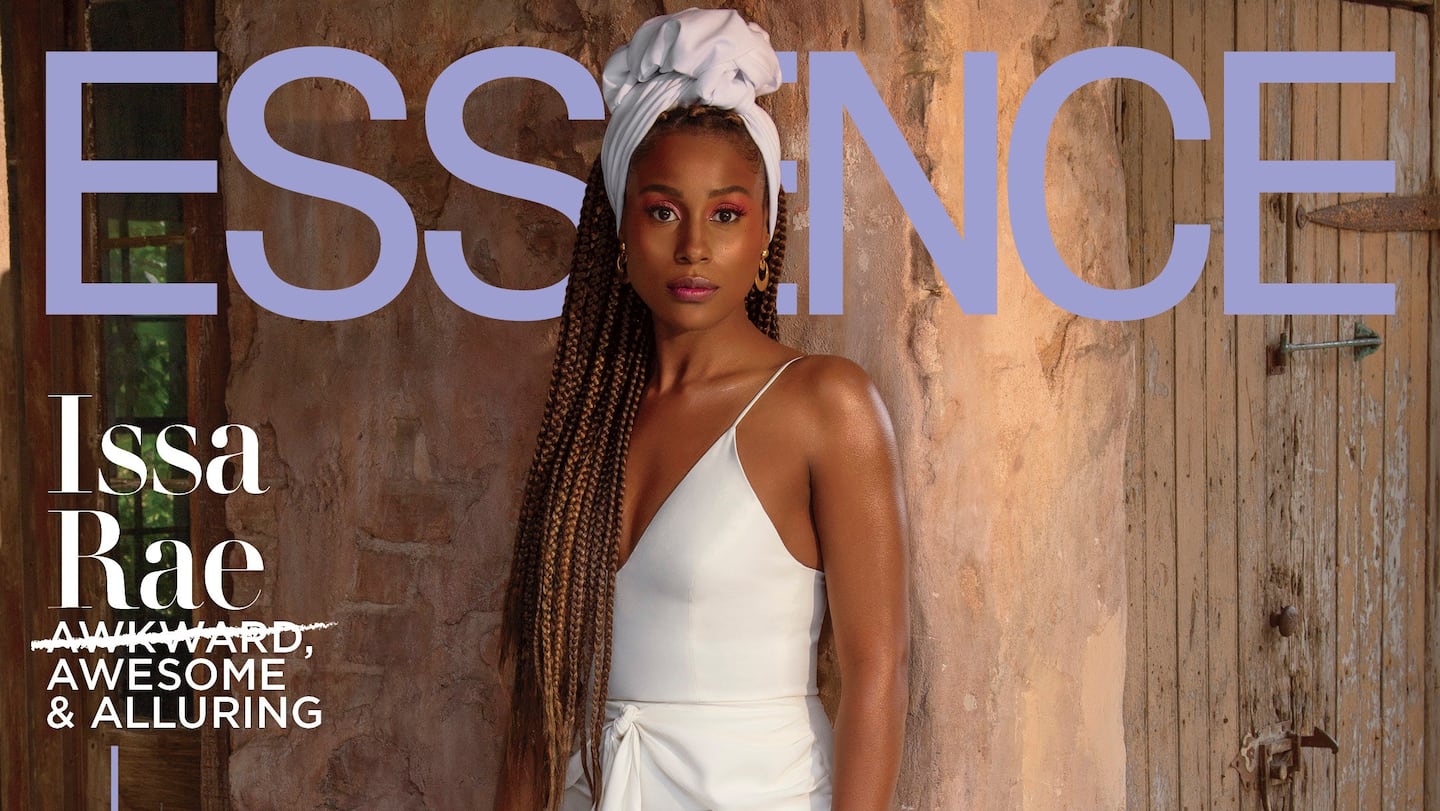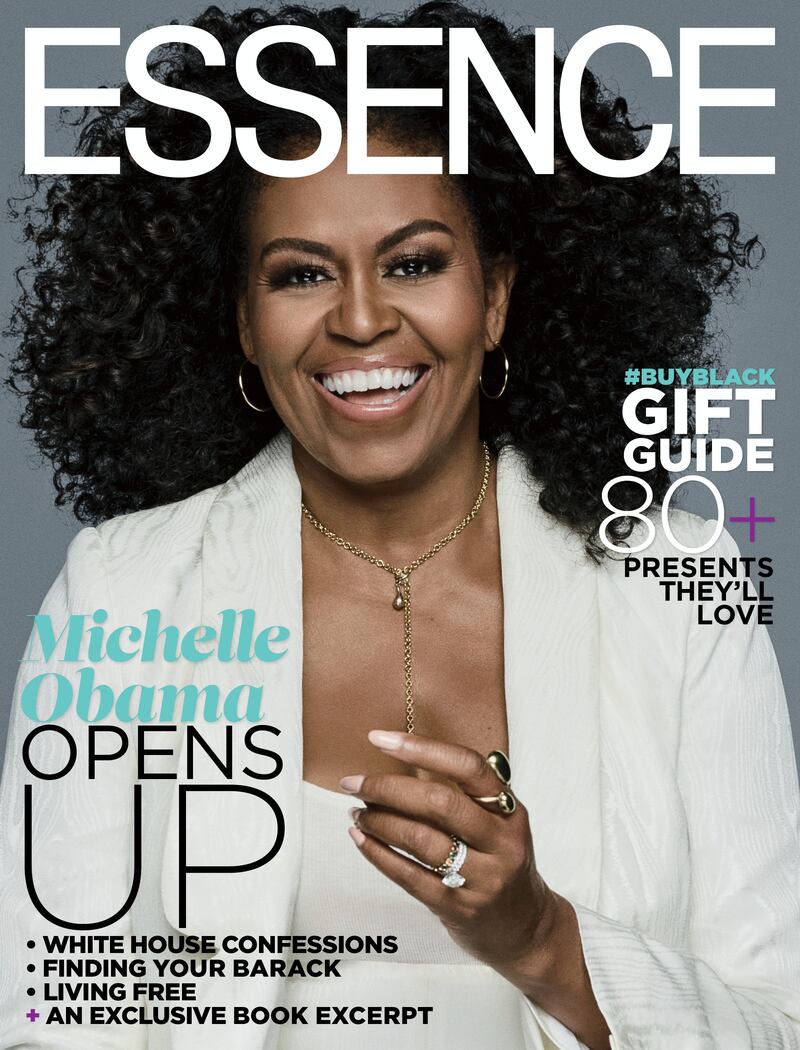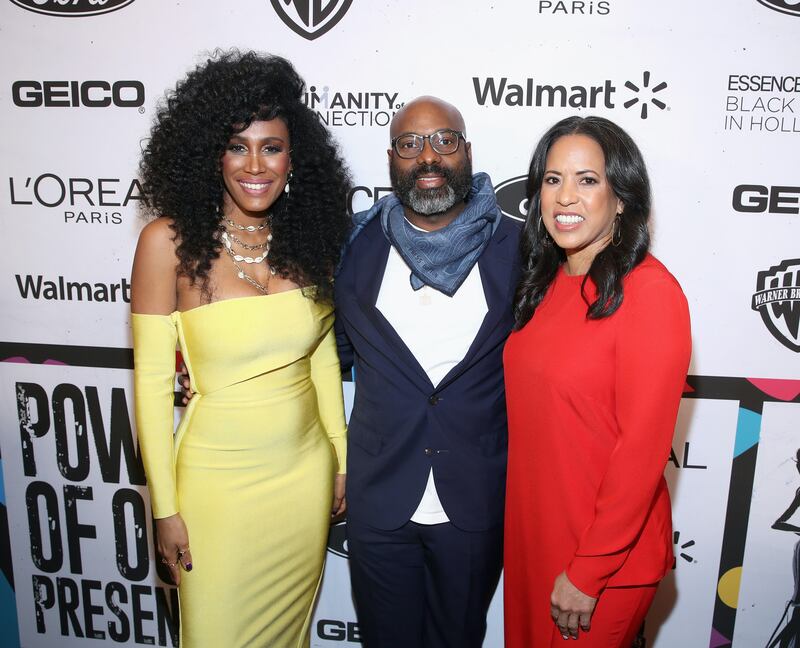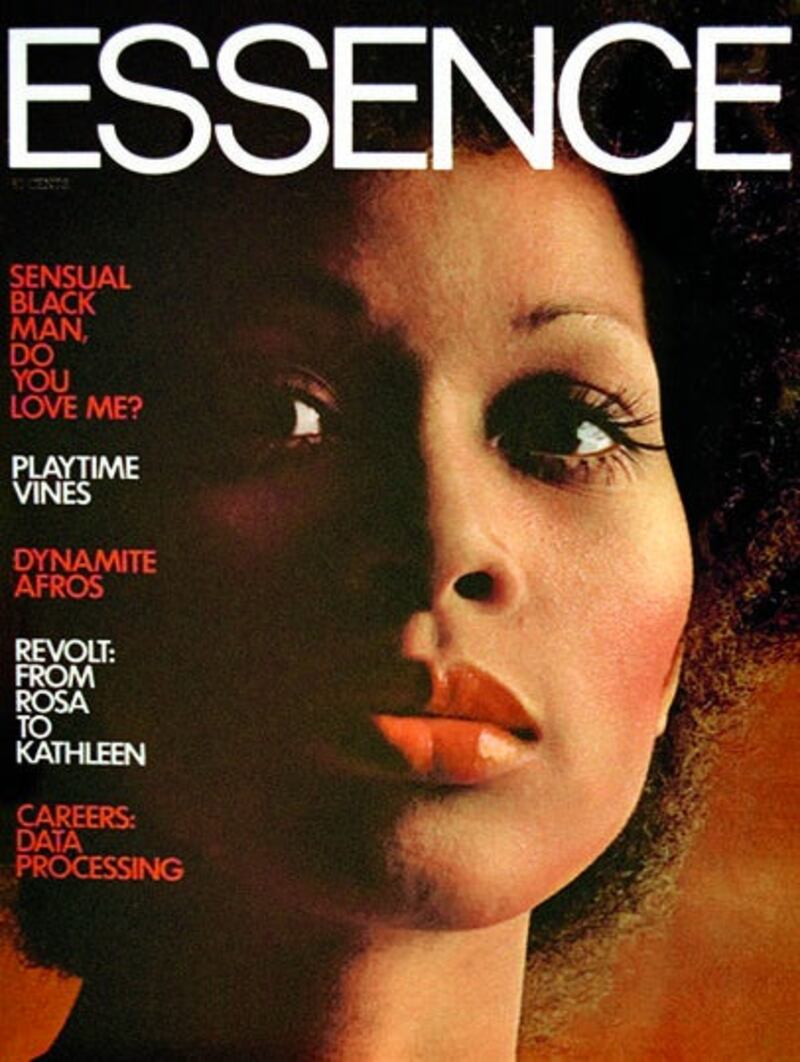
The Business of Fashion
Agenda-setting intelligence, analysis and advice for the global fashion community.

Agenda-setting intelligence, analysis and advice for the global fashion community.

BROOKLYN, United States — During the upcoming Fourth of July weekend, nearly half a million people will descend upon New Orleans for the 25th annual Essence Festival. Now one of the largest African American cultural events in the United States, the multi-day celebration has expanded from a series of concerts to include a careers conference, film screenings, networking events, pop-up shops and more experiences. It was even the setting of the hit 2017 movie "Girls Trip."
The festival is the kind of “experience” media companies are desperate to build. In the face of declining print advertising, and the digital advertising dominance of Facebook and Google, media companies increasingly rely on highly engaged segments of their audience who are willing to spend a day — or a weekend — at a sponsored event.
Essence has always had a close connection to its readers. The magazine was founded in 1970 as a black-owned publication for black women who, coming out of the Civil Rights era and in the midst of a new feminist wave, were eager to read not only about fashion and beauty but careers and spirituality too.

Michelle Obama featured on Essence in 2018 | Source: Courtesy
ADVERTISEMENT
It was one of the fastest growing magazines in its first two decades in print, but advertising revenue never matched the audience. Many brands worried advertising in the pages of Essence would turn off white customers, according to reports from the time. In 2000, Time Inc. acquired 49 percent of the business and bought the rest five years later. It was a controversial decision and during that period, some readers thought the magazine lost its editorial direction. At that same time, a new generation of digital publications emerged, including The Root (founded in 2008, now owned by private equity firm Great Hill Partners), Shade Room (since 2014) and Blavity (also since 2014).
But as of last year, Essence is black-owned once again, acquired by entrepreneur Richelieu Dennis and his family, marking a fresh slate for the legacy title.
The Essence acquisition comes just as brands are waking up to the fact that, in order to compete for customers in today’s consumer market, they need to cater to diverse audiences in authentic ways: beauty brands need diverse shades options, fashion brands need diverse models and endorsers. African Americans are estimated to spend $1.2 trillion annually, and over-index in spending in several self-care categories, including women’s fragrances, according to a recent report from Neilsen. Black consumers are more likely to interact with brands on social media, and their shopping preferences have a “halo effect” on mainstream consumption.
Dennis wants Essence to serve as a connection between those advertisers and its audience. The media business is now one part of Essence Ventures, of which the Dennis family is the majority shareholder. The company encompasses the festival and its related events, the media business, and Naturally Curly, a website for women with curly hair. Future acquisitions are planned. The print product is just the cherry on top.
“I think everybody else saw it as a magazine,” he told BoF. “I never saw a magazine. I saw a platform upon which to serve a community that wasn’t being served properly.”
Today, black women are being courted by mainstream media more than ever before. Diversity and inclusion are trendy, with fashion and lifestyle publications frequently featuring black celebrities and models on their covers. The increased representation is a sign of progress, but it also threatens media that catered to this audience when no one else would.
Essence’s legacy magazine contemporaries, Ebony and Jet, are also in a transition period: In 2016, an investment firm in Austin, Texas acquired both titles, and their former owner, Johnson Publishing, filed for bankruptcy on Wednesday.

Essence chief content and creative officer Moana Luu, Essence Ventures chairman Richelieu Dennis, and Essence Communications CEO Michelle Ebanks | Source: Randy Shropshire/Getty Images
ADVERTISEMENT
Dennis said Essence still plays an important role for black women, who can see themselves in its pages every month, not just a few times a year. The title has a print circulation of about 1 million and sees an average of 5.2 million visitors to its website monthly. He wants Essence to be a trailblazer for black-owned businesses in fashion, beauty and media, industries which have historically appropriated black culture. They are also industries where the black community rarely has had an ownership stake.
“It wasn’t, ‘Hey, let’s go run a magazine company better,’” he said. “The magazine is actually irrelevant, it’s the community.”
His strategy was on full display at an advertiser event last October, where representatives from Walmart, Ford and Disney watched as Essence’s executives and editors previewed the next festival and described ambitious plans for refreshed content online and in print, plans for new video series, six new podcasts, a rebranded e-commerce platform, expanded event series and a membership for engaged readers.
Dennis was absent that day, but his presence was felt. At the end of the event, Essence Communications' chief executive Michelle Ebanks filmed a video on her phone of the audience chanting “Black owned, thank you Rich.”
“He wrote the check and made this happen,” she said on stage.
Dennis bought the magazine after he sold his beauty and personal care company, Sundial Brands, to Unilever for a reported $1.6 billion. The Liberian immigrant started the company’s first brand in 1991 with his mother and college roommate, and its portfolio of brands now includes Shea Moisture, Nubian Heritage, Madam C.J. Walker and Nyakio. Dennis is still Sundial’s chief executive officer and chairman.
The revolution must be financed.
Now his focus is on reinvesting in the black community and empowering others to build and own their own businesses. He wants the community to have a stake in its valuable cultural influence.
“The revolution must be financed,” Dennis said.
ADVERTISEMENT
How exactly Essence will do that is still taking shape, but Dennis’ main goal is to expand access to capital. Institutional investors disproportionately ignore women of colour. Since 2009, only 0.0006 percent of venture capital funding has gone to black female founders, according to a report from DigitalUndivided, and black women are more than twice as likely to get rejected for a bank loan.
A $100 million New Voices Fund launched by Dennis, with an initial commitment from Unilever, supports black female entrepreneurs with funding, networking and mentoring. A $20 million Essence Creators and Makers Fund, announced at the 2018 festival, backs the production of film, television and digital video projects by and for black women. The first completed project it funded, from producer Sidra Smith, debuted at Sundance Film Festival in February.
Through Essence Ventures and the New Voices Fund, Dennis has invested in the arts and music-focused Afropunk Festival, inclusive beauty festival Beautycon, Mayvenn, a marketplace for hair and hair stylists, vegan beauty line Beauty Bakerie and several other businesses.
Dennis sees Essence, online and in print, as another way to support the entrepreneurs he funds. “Because of this platform, we can also help [founders] position and market their brands right,” as well as find new customers.
The latest edition, featuring writer and actress Issa Rae on the cover, recommends beauty products from black-owned brands and features interviews with young black entrepreneurs and inspirational advice from black beauty executives.
In many ways, the latest issue reflects the kind of content mix that made Essence beloved in the first place. The magazine, founded by Edward Lewis and other businessmen 49 years ago, has a long history of mixing career advice with a wide range of content, from celebrity interviews to fiction to relationship advice, before this was common practice for women’s publications.

Essence's first cover | Source: Courtesy
Its best-known editor-in-chief, Susan L. Taylor, joined the magazine at its inception and held the top job from 1981 to 2000, and wrote what became a beloved monthly column about overcoming life’s challenges. Taylor was a role model for Essence’s readers, speaking publicly about misconceptions about black women and problems facing the community, such as racial disparities in incarceration. Taylor also brought renowned writers to the magazine: the fifteenth-anniversary issue featured the work of Alice Walker, June Jordan and Toni Morrison, among others.
Co-founder and publisher Lewis said the Time acquisition, while controversial at the time, would give Essence the resources to grow. The festival expanded, but the magazine's circulation stagnated.
Ebanks, who joined Essence as publisher in 2001, said Time wasn’t the best home because the magazine did not have control over its own profits and resources, and because the title didn’t fit the typical template of a women’s brand.
“It sounds obvious but we were, for 12 years, part of a declining company and that changes you in terms of just lowering expectations and aspirations,” she said. “You have to relearn how to be aggressive, performance-driven, fast.”
Now Ebanks is transitioning the company, out of Time Inc’s portfolio, from a survival mode to a growth mindset.
The transition has been a bumpy one, said Ebanks. “I’m not always the most popular person.”
The new era of leadership has seen its fair share of staff turnover. The former editor-in-chief, editorial projects director and digital content director have exited, along with about 8 to 10 others. But overall the size of the staff has more than doubled since Essence left Time Inc, to 114.
“[The acquisition] was extraordinarily liberating and a bit overwhelming, because we didn’t plug into another operation," said Ebanks. "We had to unplug and rebuild,” including starting virtually from scratch when it came to digital media.
Dennis was new to media and full of constructive criticism, Ebanks said. He told BoF he is not involved with the day-to-day running of the company and that he avoids any conflict of interest with his relationship with Unilever.
“We have focused on a church and state approach to that,” he said. “I'm no expert at this and I don't I don't pretend to be.”
The October issue proved particularly contentious. An early draft of a cover profile of the singer Kelis initially included allegations she had made that her ex-husband, the rapper Nas, had physically and mentally abused her, according to sources with knowledge of the situation. After the magazine reached out to Nas — but before the issue ran — the rapper posted a public letter refuting her claims. The story was published under a pseudonym and did not include the allegations. A different source familiar with the matter said the published version of the articles reflects the original intended editorial vision.
Also in October, after a six-month search for a new editorial leader, Essence looked outside the publishing world to hire Moana Luu as chief content and creative officer, in the hopes that she will bring a global and multi-platform perspective to the title. Originally from Martinique, Luu is a former TV host, interior designer and creative consultant who represented her home country at Miss World in 2005. She most recently served as the chief creative and brand officer at Trace Media Group, a youth-oriented African media company.
“I do come from a marketing [background], so I do understand the importance of the advertiser of the brand and the strong partnerships that we can build,” Luu said. “This is the key element of a successful media company now — brand and media are building content together, and we can stay authentic.”
Ebanks believes the festival will be an opportunity to continue to introduce luxury brands to the Essence audience, which have largely eluded the company.
In the meantime, Essence has a lot of runway. At the end of April, Essence's "Beauty Carnival," previously only a part of the main festival, is coming to New York as part of a multi-city tour, sponsored by Aveeno. The shopping and conference event represents one way Essence is planning to amplify the way it connects with readers outside its pages. Special guests include Ciara, Dapper Dan and the supermodel Iman, who has appeared on Essence's covers half a dozen times throughout her long career. In today's media landscape, that kind of history still matters.
Editor's Note: This article was revised on 12 April 2019. An earlier version of this article states that the New Voices Fund was part of Essence Ventures. They are separate entities.
Related Articles:
[ Magazines Are Dead. But Media Isn’t.Opens in new window ]
[ Vanity Fair Italia Editor: 'I Am Not Doing a Magazine, I Am Building a Network'Opens in new window ]
[ What Can the Fashion Industry Do To Be More Inclusive?Opens in new window ]
From analysis of the global fashion and beauty industries to career and personal advice, BoF’s founder and CEO, Imran Amed, will be answering your questions on Sunday, February 18, 2024 during London Fashion Week.
The State of Fashion 2024 breaks down the 10 themes that will define the industry in the year ahead.
Imran Amed reviews the most important fashion stories of the year and shares his predictions on what this means for the industry in 2024.
After three days of inspiring talks, guests closed out BoF’s gathering for big thinkers with a black tie gala followed by an intimate performance from Rita Ora — guest starring Billy Porter.